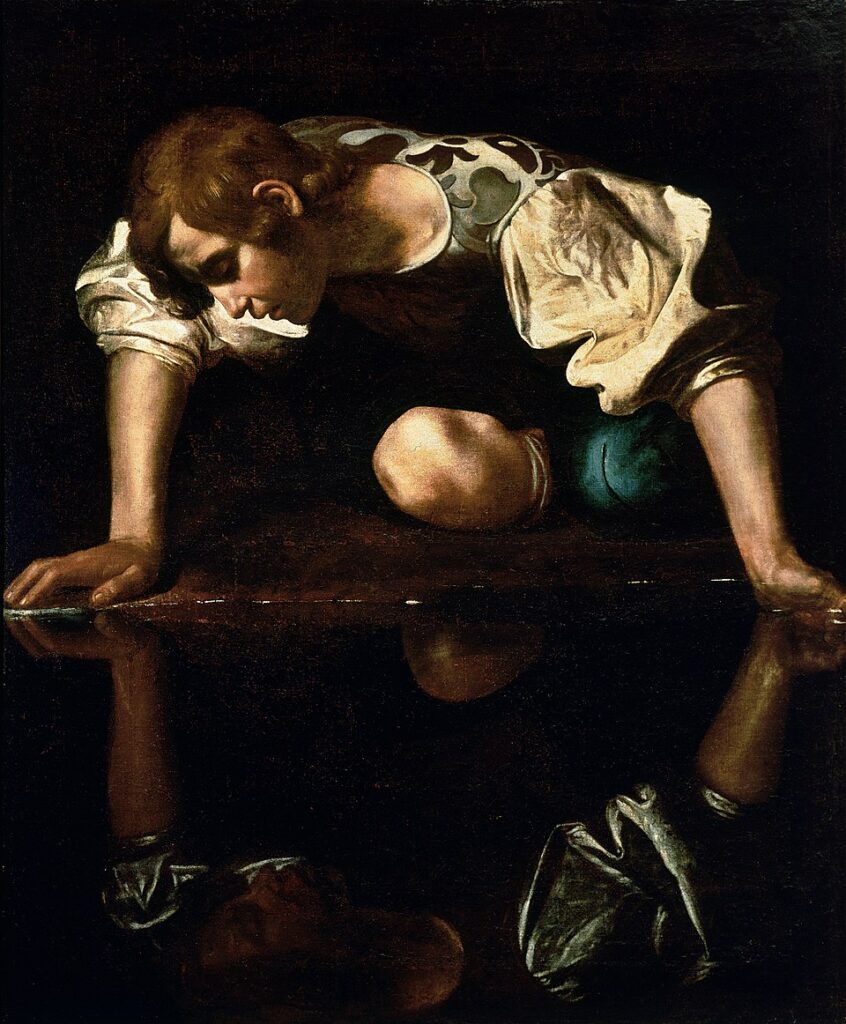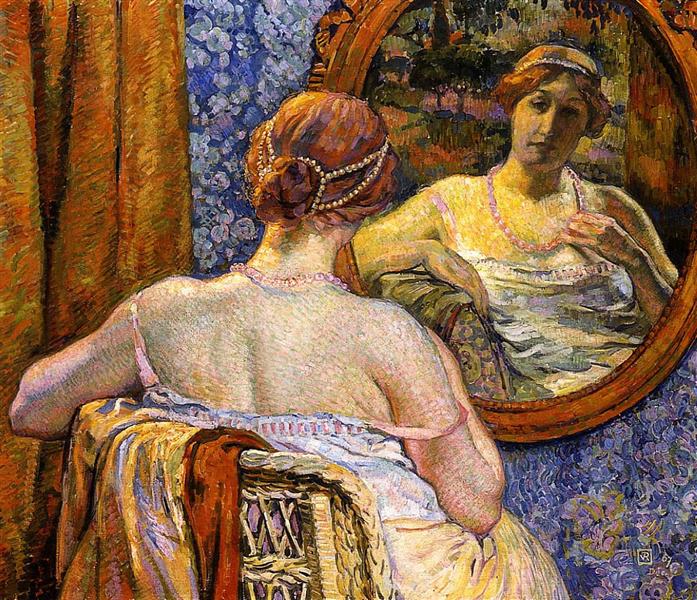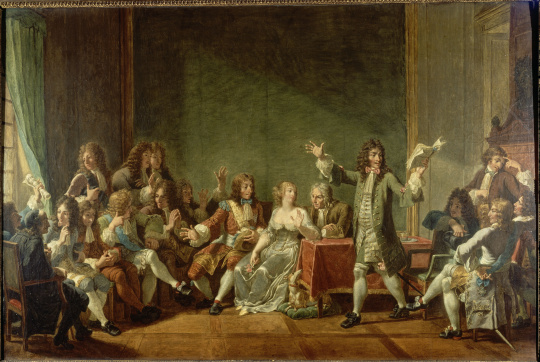Among liturgically concerned responses to the previous post, one of them gave me a start:
On Corpus Christi, at a Manhattan parish, we had to sing an entrance song which begins, “We are here to tell our story, We are here to break the bread, we are here to know our rising from the dead . . . ”
Here to tell our story . The Gospel of Me. The all-encompassing Cosmic Me. The lyrics lend new meaning to the adjective catholic , do they not? The respondent rightly makes fun of it: “It was like the B-side of a Debby Boone album, except Debby Boone’s lyrics are more coherent.” Yet the lyrics are more ominous than that. Any global extension of the self into the very object of liturgical devotion is deadly. Ovid knew just how lethal self-worship was: Narcissus wasted unto death mooning over his own reflection.

This occurs to me every time I walk past the lawn of the local Episcopal church. Staked in the ground close to the sidewalk is an eight foot banner erected in the wake of the Newtown school shooting. Great block letters trumpet: THEY ARE ALL OUR CHILDREN. Beneath the slogan is a list of endorsing religious groups: the town’s four Christian denominations, the local temple, the Quakers, regional Baháis, and the county Muslim association.
My gorge rises at the sight of it. This is grandstanding clothed as compassion. Counterfeit condolence, the banner comforts no one. Words are not directed to the suffering parents of those murdered school children. They are addressed to our town, not Newtown.

An outsized bumper sticker, the banner advertises its own self-admiring stance. That it is still on show six months after the shootings insinuates a political agenda—gun control—for which the deaths of children were expedient. The disguise of fellow-feeling gets thinner each day that the banner stands.
You have to have a taste for tartuffery to greet this display of higher sanctimony as anything but cant. The falsity of it is plain: The children of Sandy Hook Elementary School are not our children. Their deaths have not withered our hopes, crushed our spirits, caused us unimaginable agony. That pain belongs exclusively to the parents who gave those little ones life and love. The solemnity of parental grief is mocked by unctuous affectation in service to an unspoken platform that circumvents informed, serious discussion.
To broadcast one’s own empathy—made without risk or cost—is pharisaical vanity. Signatories to this vulgar pennon offer nothing but cheap grace, bestowed on themselves. My town’s children remain snug in their beds, ATM cards under their pillows. Ivy League visions still dance in their heads. Their birthdays continue.

The more language is used to work against intellect, the more vulnerable we are to the consoling purr of jargon. Salesmanship. Devoted to soothing indirections—so valuable in preserving self-image—we become febrile in the face of hard questions that require asking.
While our street-side banner affirms the fine intentions of all signatories, plans are moving speedily along for the building of the hamlet’s first mosque and cultural center. Town meetings on the matter, now in the final pre-construction stage, have been a comedy of evasion. Residents are too exquisitely adverse to raising any issue that might cast an impolitic shadow on their vaunted good will. Instead, anxiety is strenuously deflected onto clamor over the center’s impact on local traffic, the possibility of septic failure, dark hints of potential environmental damage, the dangers of habitat destruction.
Truly, it is our heart’s desire that young Aamil and Aaleyah have a nearby Muslim summer camp. But we do have wetlands to protect also. And what about the deer?
Local clerics, Christian and Jewish, persevere in whipping up support among the godly for the eight-acre complex: We have broken bread together, worked hard for interfaith relations, studied each others’ (carefully selected) sacred texts, celebrated Thanksgiving together. Memorial Day, too.Inclusiveness , minus attention to precisely what is being included. Outreach , but no cautious eye on what the outstretched hand might touch. Bromides run like gravy down the chin.
No one—not the public, clergy or press—has asked if the acreage being developed was sold according to Islamic law. Is there any safeguard against a Muslim understanding that the property belongs to the ummah in perpetuity? In the future, can it be resold to any bidder in the manner of churches and synagogues? Such questions would appear uncivil; and ours is very civil town.
Its self-regarding courtesy precedes it to the negotiating table, a point not lost on area Muslims. Already they are seeking substantial reductions in those fees required by law to be paid to the town by any developer. Let the dhimmi pay?
That takes me back where I began: remembering that Narcissus died. He could not survive on his lovely reflection. Neither can we.


